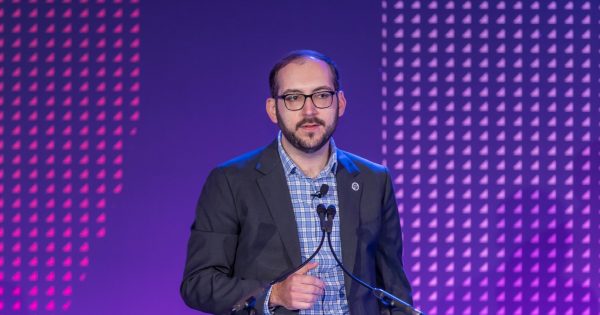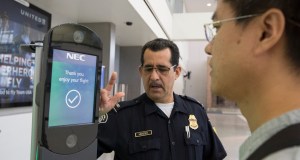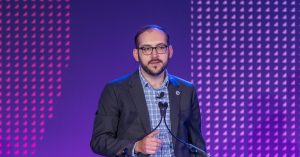Despite all of the stories that point to the contrary, Rebecca Richards, the National Security Agency’s chief privacy and civil liberties officer, said the agency is “growing and evolving” on how it approaches the public’s privacy and civil liberties.
Richards spoke at length about how the NSA is trying to reform its privacy approach during a panel discussion held by the Privacy and Civil Liberties Oversight Board Wednesday, talking about how the agency wants to blend “the art and science of privacy” into its practices.
 NSA privacy and civil liberties officer Rebecca Richards. (Credit: U.S. Navy Petty Officer 2nd Class Kayla Jo Finley/DOD)
NSA privacy and civil liberties officer Rebecca Richards. (Credit: U.S. Navy Petty Officer 2nd Class Kayla Jo Finley/DOD)“A critical part of the civil liberties and privacy assessment process is to make sure we are not merely checking off boxes but fundamentally weighing the risks associated with the activity to form a holistic value proposition,” Richards said.
Richards said holistic view comes from a set of “sequential building blocks” the agency is working on, which will ultimately categorize what types of personal information is being collected, the associated privacy risk and how that information can then be used within the agency.
“Despite significant progress in privacy technology, basic privacy principles founded in strong scientific basis have largely proven elusive,” Richards said. “If we can better understand what constitutes personal information and how such information is used, we believe it will be possible to determine whether we can develop more practical approaches to evaluating the inherent risk of privacy to the individual.”
This privacy roadmap comes after President Barack Obama issued PPD-28 earlier this year, stating that “our signals intelligence activities must take into account that all persons should be treated with dignity and respect, regardless of their nationality or wherever they might reside, and that all persons have legitimate privacy interests in the handling of their personal information.”
That directive came after a number of stories tied to the Edward Snowden leaks detailed the NSA’s practice of listening to an array of communications in foreign countries, including the phone calls of world leaders.
Even with the Snowden leaks forcing the NSA’s hand, Alex Joel, the civil liberties protection officer for the Office of the Director of National Intelligence, outlined why the process toward better privacy oversight is inherently problematic.
“We operate by necessity within a sphere of secrecy,” Joel said. “We have to be able to maintain secrets in order to be effective. A fully transparent intelligence service is an ineffective one.”
On top of that fundamental wrinkle, the Snowden leaks have eroded the public’s confidence in how the government interacts with personal data. A survey released Thursday by Pew Research Center found that 80 percent of adults are concerned about the federal government’s monitoring of phone calls and Internet communications, and that 70 percent of social network users are at least somewhat concerned about the government accessing some of the information they share on sites without their knowledge.
So while the Snowden leaks have made Richards’ task incredibly daunting, she’s taking this opportunity to give NSA something it’s never publicly had: a voice.
“What we haven’t done well is explain what we’re doing,” Richards said. “If you consider that NSA has a long history of saying absolutely nothing to anyone, and we’ve had to create a voice for ourselves to explain what it is we do, and recognize that there are a lot of people who don’t take well to speaking in public, it’s a work in progress.”




